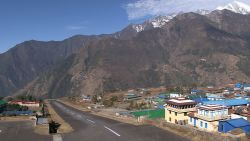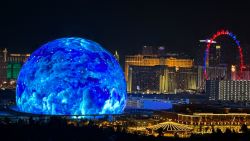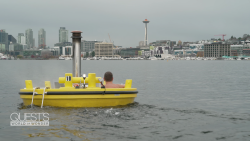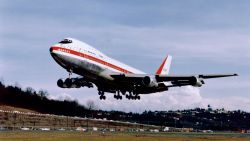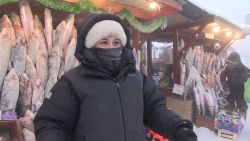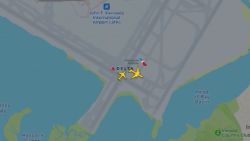Story highlights
The U.S. State Department advises against travel to North Korea
British officials warn that insulting the country's rulers could get you in trouble
Don't take pictures of Korean officials or guarded buildings
Why do people want to visit North Korea? The closed and strictly regulated country is not particularly welcoming to guests. Going in or out is complicated for visitors and impossible for anyone who offends the government. The slightest negative remark about the country’s ruling family can be considered treason.
Some Koreans who have left the country want to visit family or see the place where they were born. Some non-Korean travelers want to see a place most people won’t ever get to visit.
Merrill Newman of Palo Alto, California, wanted to see the country where he had once fought a war.
The North Korean government certainly doesn’t it make it easy for foreigners to visit. If you’re American, the rules are even stricter. And then there’s the danger of something going wrong, as it did for the 85-year-old Newman.
Newman was on an airplane to depart North Korea for Beijing on October 26 after a government-sanctioned tour when he was removed from the aircraft, his son told CNN on Wednesday. His family hasn’t heard from him since.
On Tuesday, the U.S. Department of State advised U.S citizens not to travel to North Korea, noting “the risk of arbitrary arrest and (long-term) detention of U.S. citizens in North Korea.”
Four U.S. citizens have been arrested for entering North Korea illegally since January 2009, and two U.S. citizens with valid visas were arrested there on other charges, the State Department warned.
The British Foreign & Commonwealth Office isn’t warning their citizens against making the trip, but its website does warn against making “insults or jokes about the North Korean political system and its leadership” or taking pictures of Korean officials or guarded buildings. “In 2008 a South Korean tourist who strayed into a restricted military area was shot dead. Take care to remain in permitted areas and move away immediately if asked to do so by North Korean officials.”
How Americans get to North Korea
All tourists must book a guided tour with one of about a dozen companies approved by the state-run Korea International Travel Company. (The tour operators should walk you through the visa and other requirements.) And U.S. citizens face specific restrictions that don’t apply to other travelers. They can only enter the country via airplane, unlike other travelers who can enter from China by train.
American travelers often fly into North Korea via China, so the U.S. Department of State recommends getting a multiple-entry visa for China, since a valid Chinese visa is required to re-enter China after leaving North Korea. Once in Beijing, travelers approved by the North Korean government may get North Korean visas at the country’s Beijing embassy.
No freedom of speech here
The U.S. Department of State recommends that Americans register with the U.S. Embassy in Beijing, and the Swedish Embassy in North Korea. (The United States doesn’t have diplomatic relations with North Korea.)
Americans must remember they aren’t in the United States anymore, and U.S. constitutional guarantees of freedom of speech or religion don’t apply in North Korea – or any other foreign country.
Sensitivity to a very different political reality is required. Slipping away from your hotel and government-required guide to explore can get you and your guide in trouble. Talking to North Koreans without permission – even if they don’t speak English – can also get both of you in trouble.
Even throwing away an official newspaper bearing a photo of a member of the Kim family, which are treated with the deference usually given to religious objects, has gotten travelers in trouble, said one U.S.-based Asia travel expert, who didn’t want to be named so he wouldn’t be banned from traveling to North Korea.
“If you think you can do whatever you want, you are going to get other people in trouble,” said the expert, who has led tours to North Korea. “You really have to be careful about what you say. Be conscious of the fact you’re going to get other people in trouble for your actions. Observe, don’t proselytize.”




